第122章 CHAPTER XXXI. THE COALITION.(1)
Count Haugwitz, the Prussian minister of foreign affairs, had just returned from a journey he had made with the young king to Westphalia. In his dusty travelling-costume, and notwithstanding his exhaustion after the fatigues of the trip, as soon as he had entered his study, he had hastily written two letters, and then handed them to his footman, ordering him to forward them at once to their address, to the ambassadors of Prussia and England. Only then he had thrown himself on his bed, but issued strict orders to awaken him as soon as the two ambassadors had entered the house.
Scarcely an hour had elapsed when the footman awakened the count, informing him that the two ambassadors had just arrived at the same time, and were waiting for him in the small reception-room.
The minister hastily rose from his couch, and without devoting a single glance to his toilet and to his somewhat dishevelled wig, he crossed his study and entered the reception-room, where Lord Grenville and Count Panin were waiting for him.
"Gentlemen," said the count after a hurried bow, "be kind enough to look at my toilet, and then I hope you will excuse me for daring to request you to call upon me, instead of coming to you as I ought to have done. But you see I have not even doffed my travelling habit, and it would not have behooved me to call on you in such a costume; but the intelligence I desire to communicate is of such importance that I wished to lose no time in order to lay it before you, and hence I took the liberty of inviting you to see me."
"As far as I am concerned, I willingly accepted your invitation," said Lord Grenville, deliberately, "for in times like these we can well afford to disregard the requirements of etiquette."
"That I was no less eager to follow your call," said Count Panin, with a courteous smile, "you have seen from the fact that I arrived at the same time with the distinguished ambassador of Great Britain.
But now, gentlemen, a truce to compliments; let us come to the point directly, and without any further circumlocution. For the six months that I have been here at Berlin, in order to negotiate with Prussia about the coalition question, I have been so incessantly put off with empty phrases, that I am heartily tired of that diet and long for more substantial food."
"Your longing will be gratified to-day, Count Panin," said Count Haugwitz, with a proud smile, inviting the gentlemen, by a polite gesture, to take seats on the sofa, while he sat down in an arm- chair opposite them. "Yes, you will find to-day a good and nourishing diet, and I hope you will be content with the cook who has prepared it for you. I may say that I am that cook, and believe me, gentlemen, the task of preparing that food for you has not been a very easy one."
"You have induced the King of Prussia at length to join the coalition, and to enter into an alliance with Russia, England, and Austria against the French Republic?" asked Count Panin, joyfully.
"You have told his majesty that England is ready to pay large subsidies as soon as Prussia leads her army into the field against France?" asked Lord Grenville.
"Gentlemen," said Count Haugwitz, in a slightly sarcastic tone, "I feel greatly flattered by your impetuous inquiries, for they prove to me how highly you value an alliance with Prussia. Permit me, however, to communicate to you quietly and composedly the whole course of negotiations. You know that I had the honor of accompanying my royal master on his trip to our Westphalian possessions, where his majesty was going to review an army of sixty thousand men."
"It would have been better to send these sixty thousand men directly into the field, instead of losing time by useless parades," muttered Count Panin.
The minister seemed not to have heard the words, and continued: "His majesty established his headquarters at Peterhagen, and there we were informed that Archduke Charles of Austria was holding the Rhine against Bernadotte and Jourdan, and that the imperial army, under the command of Kray, in Italy, had been victorious, too; it is true, however, the Russian auxiliary army, under Field-Marshal Suwarrow, had greatly facilitated Kray's successful operations. This intelligence did not fail to make a powerful impression upon my young king, and I confess upon myself too. Hitherto, you know, I had always opposed to a war against France, and I had deemed it most expedient for Prussia to avoid hostilities against the republic. But the brilliant achievements of Russia and Austria in Italy, and the victories of Archduke Charles on the Rhine, seem to prove at length that the lucky star of France is paling, and that it would be advantageous for Prussia openly to join the adversaries of the republic in their attack."
"A very bold and magnanimous resolution," said Count Panin, with a sarcastic smile.
"A resolution influenced somewhat by the British subsidies I have promised to Prussia, I suppose?" asked Lord Grenville.
"Let me finish my statement, gentlemen," said Count Haugwitz, courteously. "The king, undecided as to the course he ought to pursue, assembled at Paterhagen a council of war, our great commander, Ferdinand, duke of Brunswick, of course, having been invited to be present. His majesty requested us to state honestly and sincerely whether we were in favor of war or peace with France.